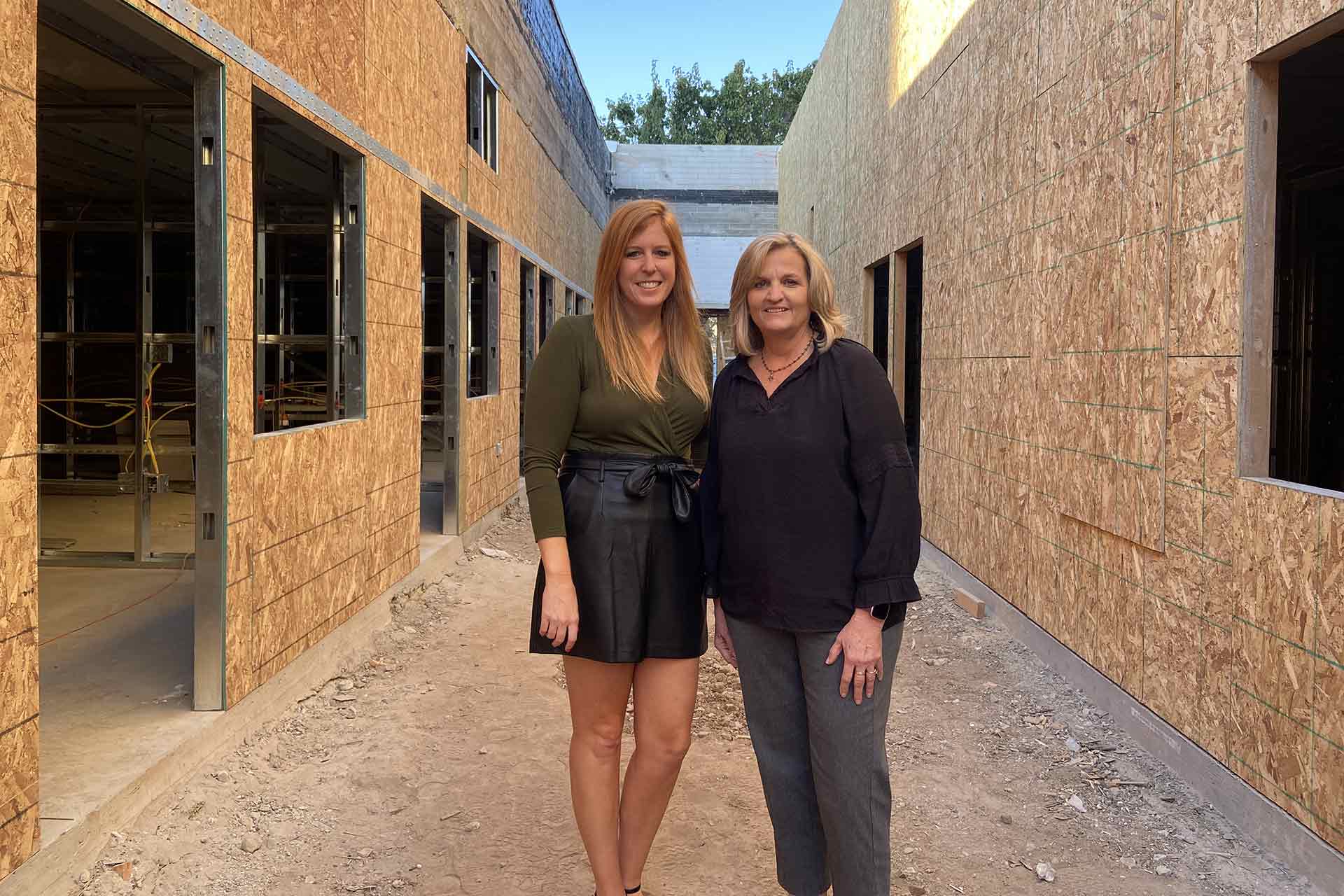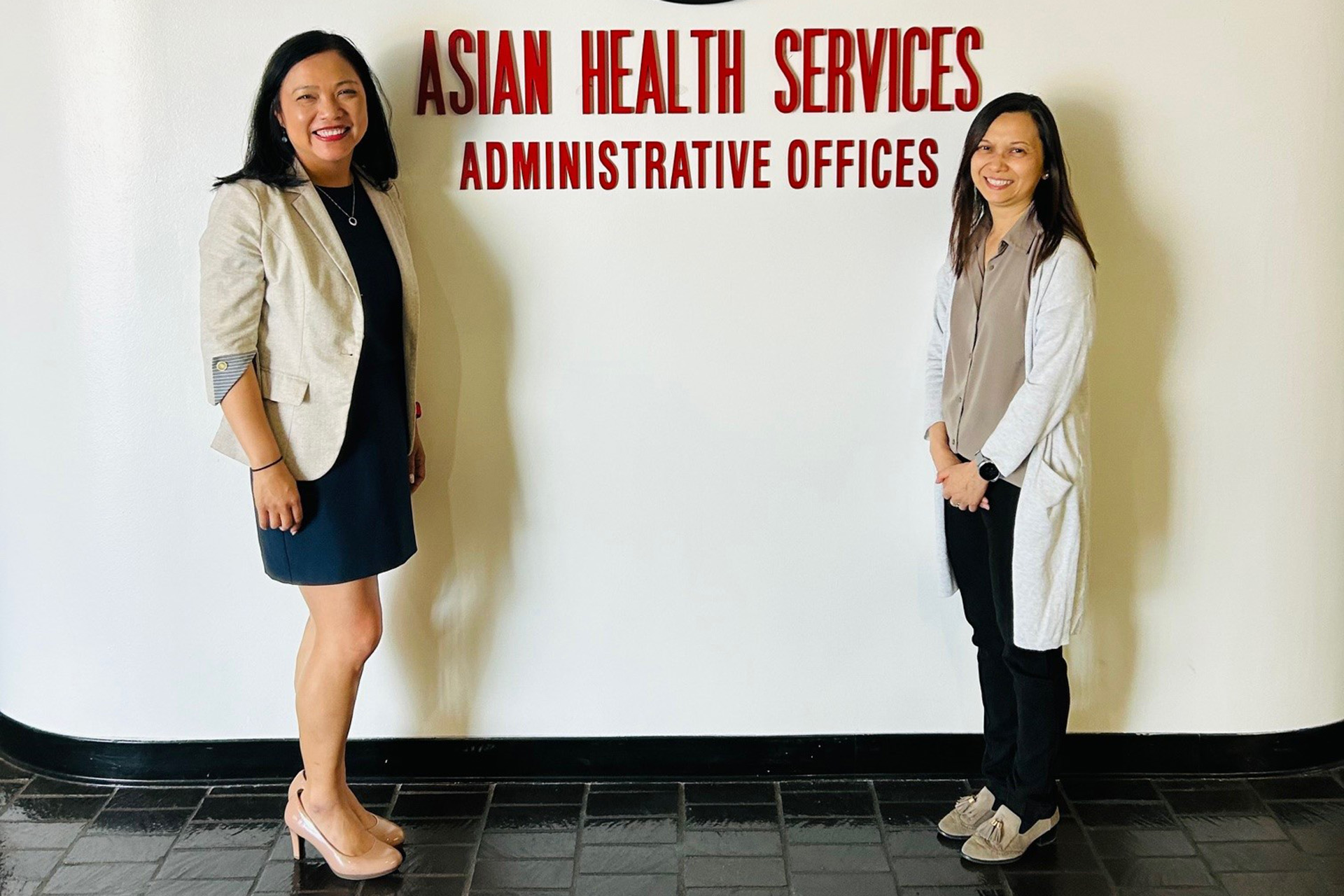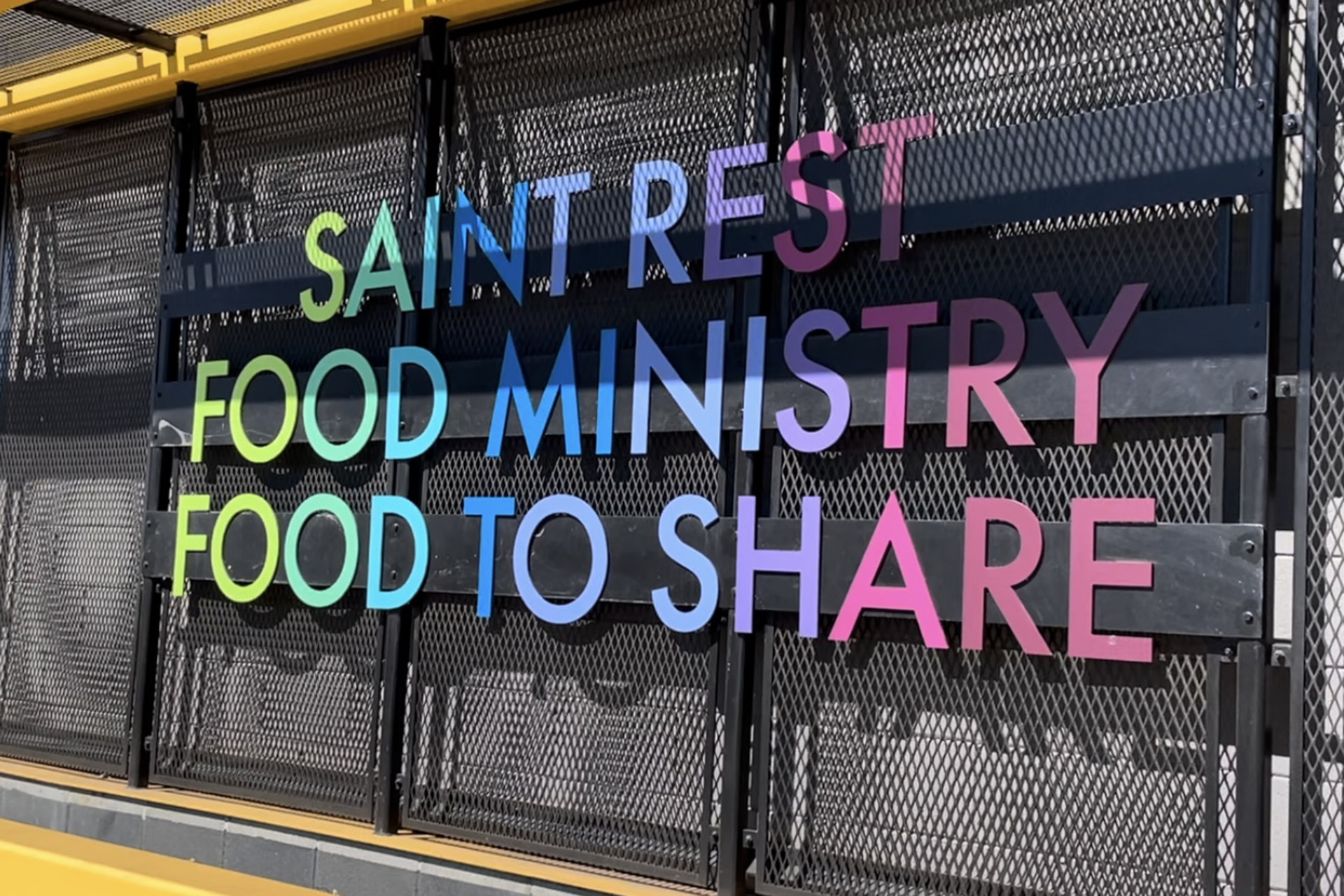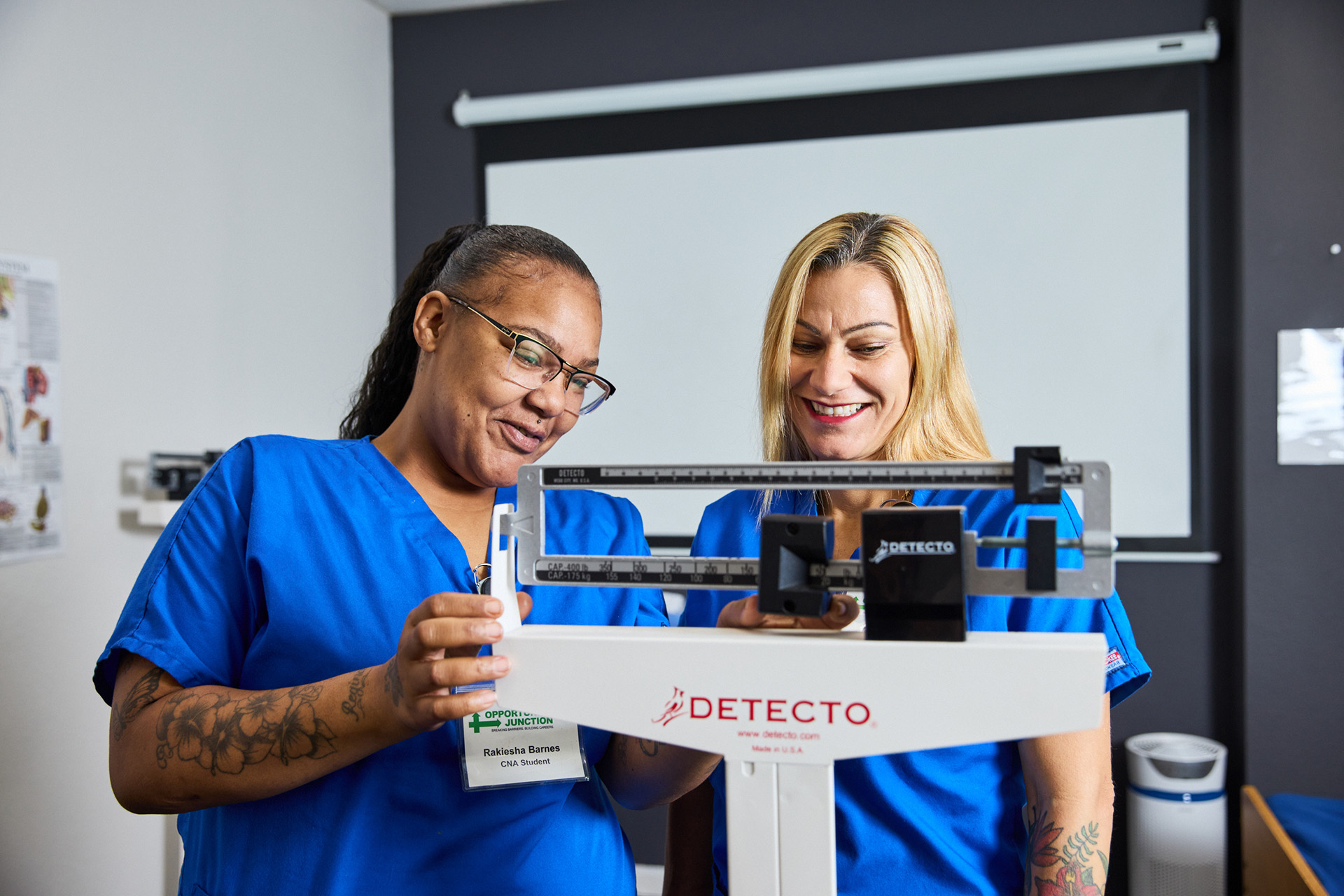On a busy downtown Modesto street, a former office building that once housed a youth drop-in center is being transformed into permanent supportive housing for low-income young adults who are homeless or at risk of becoming homeless.
The 14-unit combination studio and one-bedroom apartment complex is largely funded by a $3.9 million grant from the State of California’s Homekey program. Since the start of the COVID-19 pandemic in 2020, Homekey has granted $2.7 billion to cities, counties, and other jurisdictions to rapidly expand housing options for people who are experiencing homelessness.
“Homekey grants provide a huge influx of funding,” said Jessica Hill, Community Development manager for the City of Modesto. “It’s enough to almost fully support a project that will provide housing units quickly for some of the most vulnerable people in our community.”
Last year, Kaiser Permanente awarded a $1.5 million grant to Enterprise Community Partners to provide technical assistance to under-resourced cities, counties, and tribal governments that would not otherwise have the experience or bandwidth to apply for Homekey funds.
The City of Modesto applied for the funding with the Center for Human Services, a nonprofit that will own the building and provide services to its young adult residents including mental health counseling, job training, and connection to benefits and medical care. Modesto successfully navigated a lengthy and complex Homekey application process with the help of a program funded in part by Kaiser Permanente.
Last year, Kaiser Permanente awarded a $1.5 million grant to Enterprise Community Partners to provide technical assistance to under-resourced cities, counties, and tribal governments that would not otherwise have the experience or bandwidth to apply for Homekey funds. Enterprise contracted with experts to help with services including property appraisals, project financing, environmental clearances, service plans, and public engagement.
Modesto received technical assistance through Focus Strategies, a consultancy firm that contracted with Enterprise. Hill said that support was essential.
“This was the City of Modesto’s first Homekey application. To have a point person guiding us through the process was incredibly helpful,” she said.
Housing and health are inextricably linked
Kaiser Permanente’s support of Homekey projects is part of its multipronged approach to increasing affordable housing and addressing homelessness in the communities it serves.
“Housing and health are inextricably linked,” said Yvette Radford, vice president for Kaiser Permanente Northern California External and Community Affairs. “Homelessness is having a profound effect on residents in all parts of the state, not just in big cities. We’re proud to support Enterprise Community Partners and help smaller cities access this vital public funding.”
The City of Modesto is medium-sized, with a population of nearly 219,000. Yet, it documented more than 1,400 people as homeless in its annual point-in-time survey last February.
Big cities, with large budgets, can often dedicate a staff person to learn the ins and outs of a critical state program like Homekey. Smaller localities and organizations don’t have that ability. That’s why technical assistance is key.
Kaiser Permanente funding has helped 25 cities, counties, and tribal governments access $2.75 billion in state Homekey funding.
Shanon Lampkins, who leads the Homekey technical assistance for Enterprise Community Partners, said her organization has helped more than 90 jurisdictions, including tribal governments, in navigating the Homekey application process. She said the Kaiser Permanente funding has helped 25 cities, counties, and tribal governments access $2.75 billion in state Homekey funding.
“We’re connecting them to the help they need to get this critical funding, and they’re able to house people who were living on the street,” Lampkins said. “They tell us the state funds are literally saving lives.”
The technical assistance is not only helping governments build and expand critical housing; it’s also helping them build knowledge in areas like project financing and social service plans. This is knowledge they can use again and again as they develop future plans for supportive housing.
While the City of Modesto is working intensively to complete its first Homekey project by late November, it’s also gathering information to submit a Homekey funding application for its next proposed project. Hill said the next project includes purchasing a former motel for conversion into permanent supportive housing.
“We’re getting our sea legs, and this first project is helping us prepare for the next round,” she said.





This Post Has 0 Comments